Frontrunner and former vice president Joe Biden will face off against Bernie Sanders, Kamala Harris, Pete Buttigieg, and others in the first 2020 Democratic debates, but will not appear on the same stage as Elizabeth Warren or Cory Booker, the Democratic National Committee announced today.
On the first night, June 26, the following candidates will appear: Booker, Warren, Beto O’Rourke, Amy Klobuchar, John Delaney, Tulsi Gabbard, Julian Castro, Tim Ryan, Bill de Blasio and Jay Inslee.
On the second night, Joe Biden will face off against Sanders, Harris, Buttigieg, Michael Bennet, Marianne Williamson, Eric Swalwell, Kirsten Gillibrand, Andrew Yang and John Hickenlooper.
Both debates will take place in primetime. The lotteried division of the field across two nights aimed to distribute the 20 qualifying candidates equally, as opposed to the RNC’s 2016 division of that year’s presidential primary field into primetime and undercard debates, which got much lower ratings.
This year, many of the top-tier candidates will be concentrated on the second night’s stage. Hosted by NBC News, MSNBC and Telemundo, the debates will be broadcast in primetime from Miami on June 26 and 27.
In order to qualify, candidates had to either poll at 1% in three surveys or receive 65,000 individual donations.
Four candidates will not appear: Montana Gov. Steve Bullock; Massachusetts Rep. Seth Moulton; former Alaska Sen. Mike Gravel and Miramar, Fla., Mayor Wayne Messam.
Candidates who appear onstage will get primetime television exposure, but it could be difficult to stand out in the crowded field.
The networks announced on Tuesday morning that the moderators will be Lester Holt, Savannah Guthrie, Chuck Todd, Rachel Maddow and José Díaz-Balart.
Here are the candidates who will appear onstage in the first 2020 Democratic presidential primary debates.
Former Vice President Joe Biden

After jumping into the race in late April, Biden has been the consistent frontrunner. His campaign’s strategy has been to rise above the primary and focus his attention on President Donald Trump, and he missed a cattle-call event in Iowa with 19 of the candidates to attend his granddaughter’s graduation. Although the primary has been friendly so far, some of the other candidates have begun to take veiled shots at Biden’s record, including his past support for restrictions on government spending on abortion, which he has since reversed, and his support for a 1994 crime bill, which he still defends.
Vermont Sen. Bernie Sanders
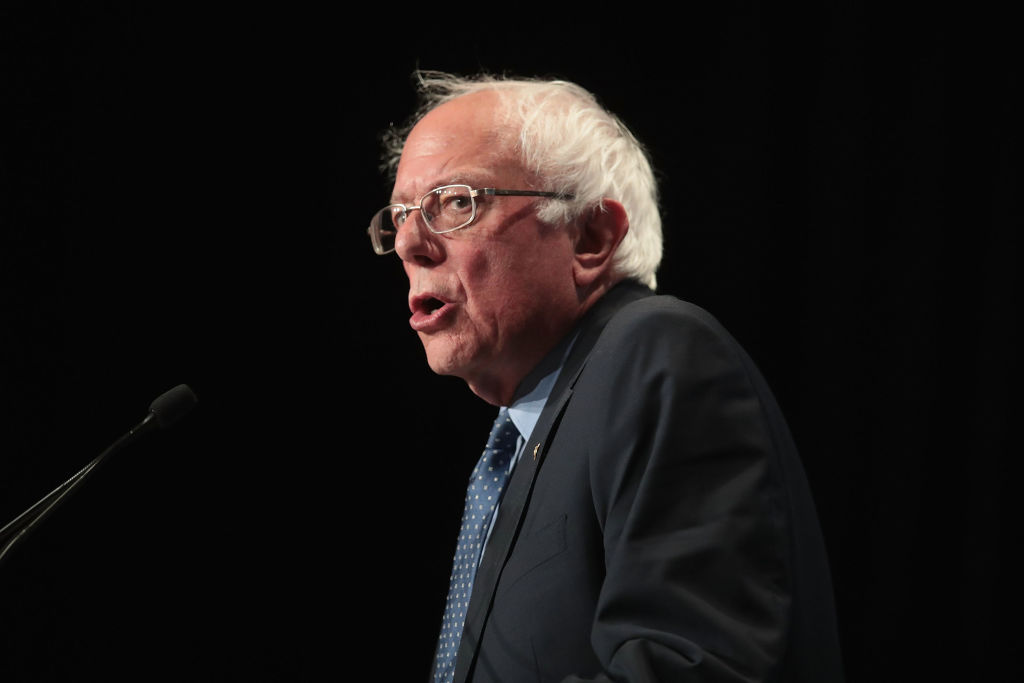
After an unsuccessful bid for the Democratic nomination in 2016, Sanders is running again. He continues to advocate for tuition-free college, and has recently gotten four other 2020 candidates to co-sponsor his latest version of the Medicare for All Act. During the 2016 primary debates, he was criticized for a tendency to interrupt Hillary Clinton on stage.
Massachusetts Sen. Elizabeth Warren

After an initial misstep with a controversial DNA test, Warren has focused her campaign on dramatic policy proposals, including a wealth tax, student debt relief, making public colleges free, universal child care and addressing the opioid epidemic. Her catchphrase — “I have a plan for that” — has become an informal campaign slogan, and she has eschewed major donors in favor of a grassroots strategy that includes taking a lot of selfies on the campaign trail.
California Sen. Kamala Harris
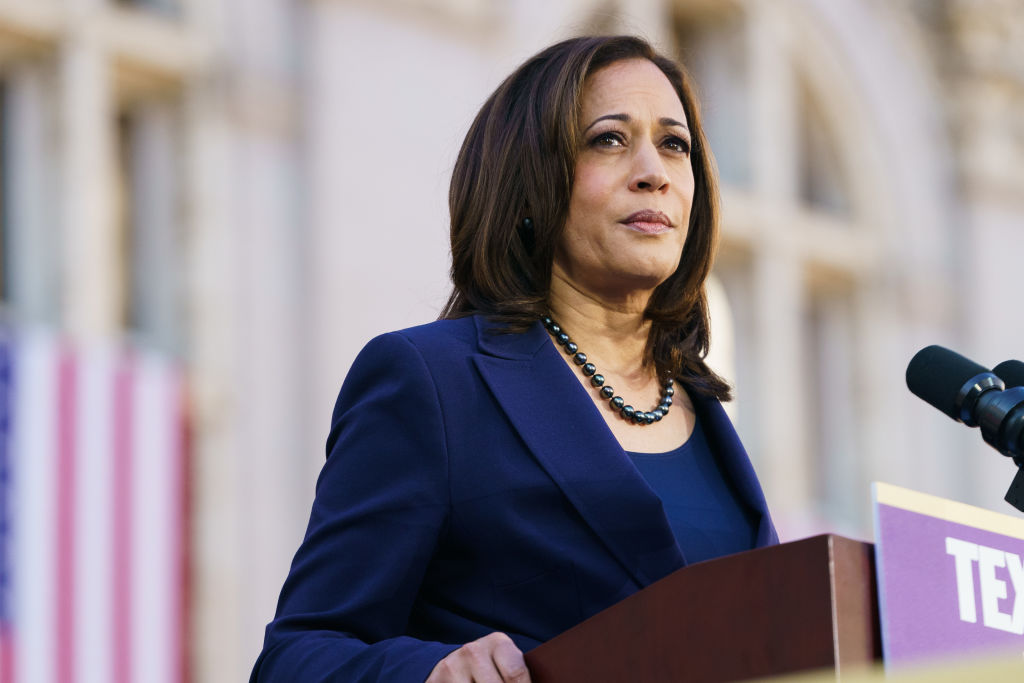
The former district attorney in San Francisco and attorney general in California, Harris was elected to the Senate in 2016. She has proposed giving the average teacher a $13,500 raise and expanding the Earned Income Tax Credit, supports Sanders’ Medicare for All bill and the Green New Deal to fight climate change. She has recently emphasized her career as a prosecutor as a way to take on Trump, but she has softened her positions on some criminal justice issues, calling for a national moratorium on the death penalty and supporting marijuana legalization.
South Bend, Ind., Mayor Pete Buttigieg

The mayor of South Bend, Indiana emerged as a surprising breakout candidate for the nomination after a standout CNN town hall in March. The 37-year-old mayor, who has embraced media appearances, has garnered attention for his military service, religion, and liberal reframing of freedom, security, and democracy. But he has also faced criticism for not talking enough about specific policies.
Former Texas Rep. Beto O’Rourke
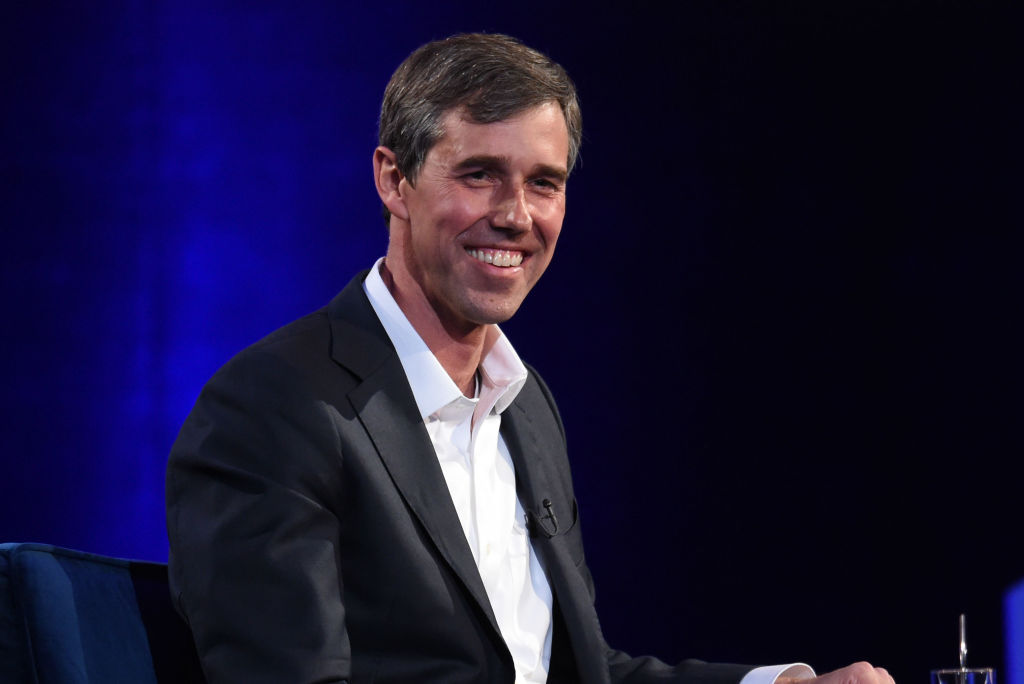
The former representative from Texas rose to prominence when he unsuccessfully challenged Texas Sen. Ted Cruz, but his presidential campaign has struggled, although he still does better in the polls than some of the sitting members of Congress. He has proposed a dramatic plan to reduce greenhouse gas emissions.
New Jersey Sen. Cory Booker

After three terms as mayor of Newark, Booker was elected to the Senate in 2012. He has proposed requiring gun owners obtain a license “similar to applying for or renewing a passport” and giving all newborns “baby bonds” — savings accounts seeded with $1,000. (Children in low-income households would receive up to $2,000 more each year.)
Minnesota Sen. Amy Klobuchar

Like Harris, Klobuchar is a former local prosecutor. She was elected to the Senate in 2012. She is campaigning on pragmatism and finding middle-of-the-road policy solutions, proposing a $650 billion plan to improve the nation’s infrastructure.
Former HUD Secretary Julián Castro

The former mayor of San Antonio, Texas, and secretary of Housing and Urban Development under President Obama, Castro has proposed a universal pre-kindergarten plan. Recently, he visited Flint and was the first of the 2020 candidates to unveil a plan to eliminate lead poisoning in America.
Washington Gov. Jay Inslee
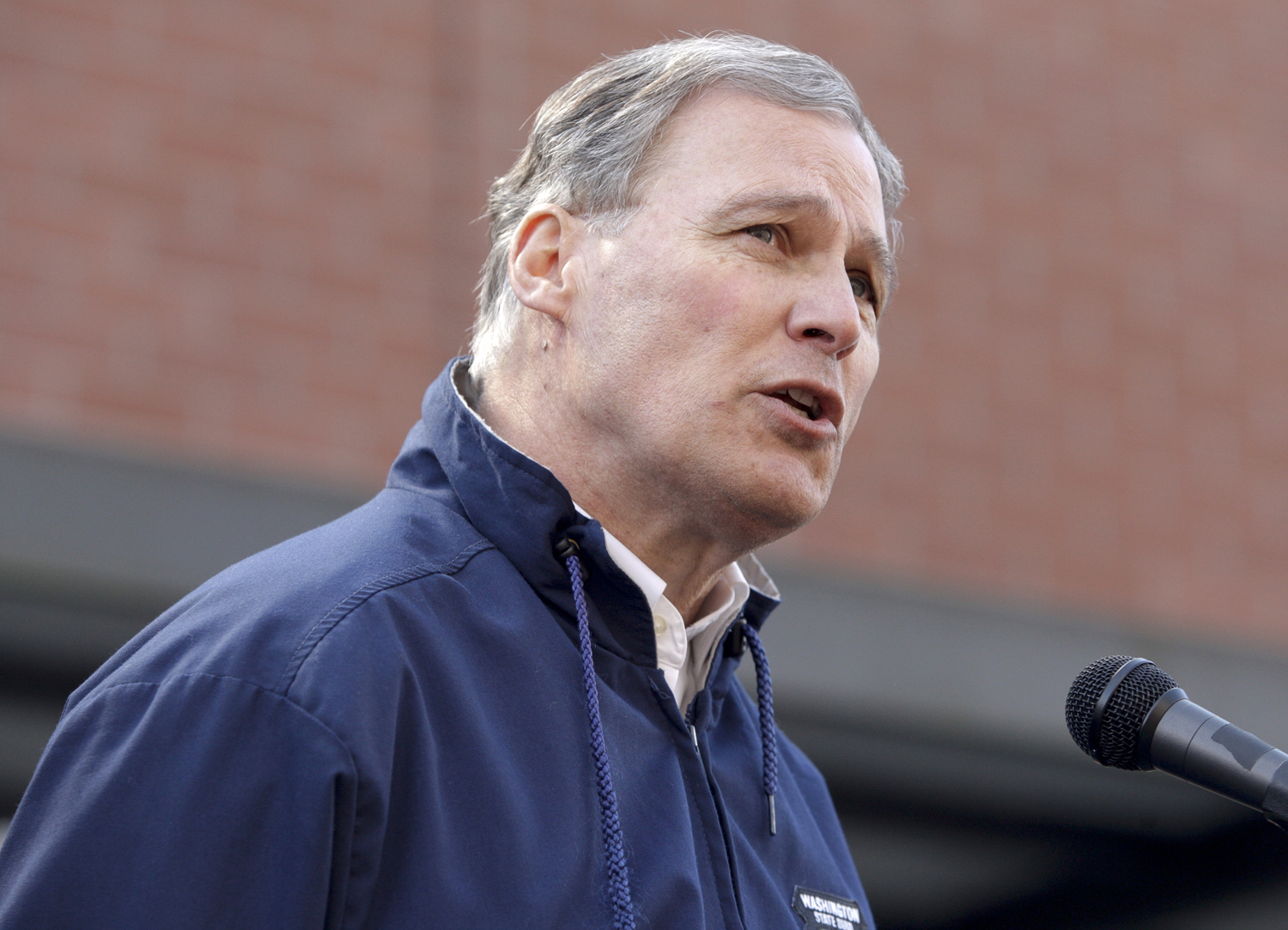
A former member of the House, Inslee has served since 2013 as governor of Washington state, where he has pushed to reorient state policy to fight climate change. After an unsuccessful attempt to pass a carbon tax to reduce greenhouse gas emissions, he recently signed a package of dramatic bills designed to get rid of fossil-fuel-generate power by 2045. His campaign is focused almost entirely on climate change and he has called for a debate dedicated to the issue. On Tuesday, the DNC issued a statement saying there would be no such debate. “If we change our guidelines at the request of one candidate who has made climate change their campaign’s signature issue, how do we say no to the numerous other requests we’ve had?” wrote DNC chair Tom Perez.
In response, Inslee told CBS News on Thursday that at least nine Democratic state party chairmen and around 50 Democratic National Committee members are planning to submit a formal resolution that would demand a climate debate.
New York Sen. Kirsten Gillibrand

A former member of the House from upstate New York, Gillibrand was elected senator in 2009. She has proposed a plan to provide paid family leave. She locked in her spot on the debate stage on Monday after struggling to meet the donor threshold, which she called “an odd measurable.”
Entrepreneur Andrew Yang

A Silicon Valley entrepreneur and philanthropist with no prior political experience, Yang advocates for a universal basic income to respond to automation. The “Yang Gang” has gained traction on the internet, including Chinese social media platforms.
Self-help author Marianne Williamson

A self-described “spiritual and inspirational author” who is Oprah Winfrey’s spiritual advisor, Williamson has called “a moral and spiritual awakening” through her campaign. Along with universal health care, free college and the Green New Deal, she supports a plan to provide $100 billion in reparations for slavery.
Hawaii Rep. Tulsi Gabbard
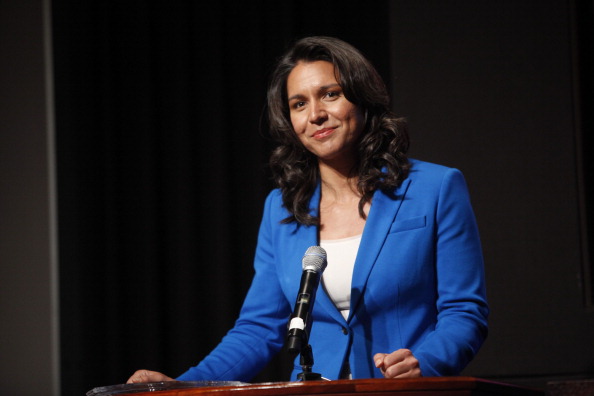
A former member of the Hawaii Army National Guard who served in Iraq, Gabbard served in the state legislature and was elected to the U.S. House of Representatives in 2012. After facing criticism for meeting with Syrian president Bashar al-Assad (and not regretting it), the Hawaii congresswoman stirred up even more controversy when she declined to say whether Assad is a war criminal.
Rep. Eric Swalwell
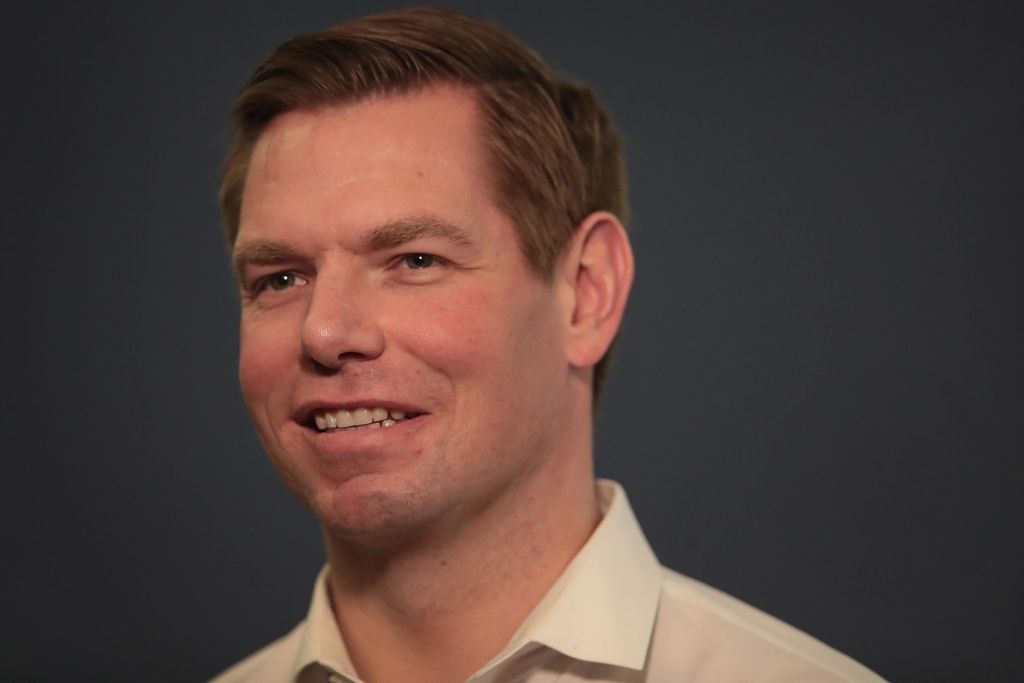
The California congressman has made gun control the central issue of his campaign. “I’m running to stop the shootings,” he said in a CNN town hall appearance. He has called for an assault weapons ban and background checks on all gun purchases.
Sen. Michael Bennet

The Colorado senator was one of four names that former President Barack Obama had floated as potential 2020 challengers before leaving office. Bennet’s campaign launch was delayed by a prostate cancer diagnosis, but he entered the race in May after being given a clean bill of health.
Former Rep. John Delaney

The former congressman was the first Democrat to enter the 2020 race, announcing his candidacy in July 2017. He has pitched himself as “the most moderate” 2020 Democrat. At the California Democratic Convention, Delaney drew boos from the crowd when he said, “Medicare for All may sound good, but it’s actually not good policy, nor is it good politics.”
Former Gov. John Hickenlooper

Former Colorado governor John Hickenlooper has pitched himself as a moderate willing to work across party lines. Hickenlooper is known for pro-business policies and he has publicly criticized the Green New Deal. At one point, he contemplated running on a bipartisan presidential ticket with former Ohio governor John Kasich, a Republican.
Rep. Tim Ryan

In 2016, the congressman from Ohio unsuccessfully challenged Nancy Pelosi for the role of House minority leader. He aims to appeal to working-class voters.
Mayor Bill de Blasio
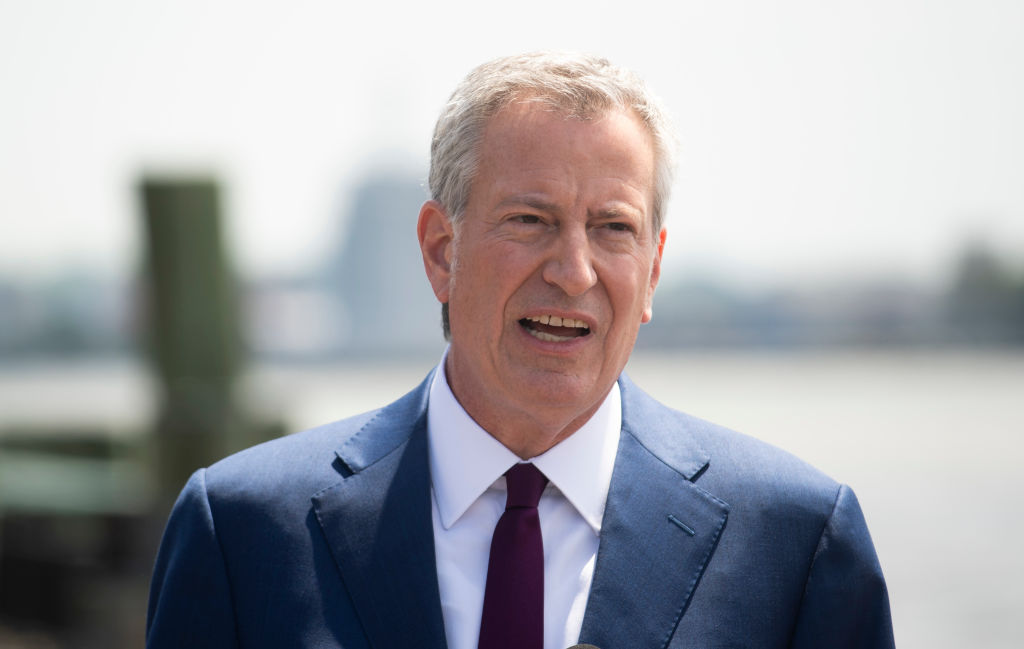
De Blasio is hoping to convert his job as mayor of New York City to the White House, following similar attempts by Rudy Giuliani and Michael Bloomberg.
The candidates who will not appear
Montana Gov. Steve Bullock: Although previously thought to have qualified for the debates, the Montana governor was bumped off the stage when the DNC retroactively disqualified one of the three polls that would have put Bullock over the polling threshold. Bullock is known for advocating for campaign finance reform and issuing an executive order to reinstate net neutrality in Montana after the FCC repeal. “If it comes to either chasing 100,000 donors or getting healthcare for 100,000 people, I’d make that choice every single day,” he told MSNBC after it became clear he would not make the stage.
Rep. Seth Moulton: The Massachusetts representative served four tours in Iraq with the Marines, and he has billed himself as the national security candidate. Despite his status as a congressman, Moulton is a political outsider who has advocated for the removal of Nancy Pelosi from House Democratic leadership. He joined the race late, on April 22. “We view this as a marathon, not a sprint,” Moulton spokesman Matt Corridoni told the Boston Globe. “While others overspend and chase polls seven months before anyone votes or caucuses, we’re focused on how to build a long-term political strategy. The folks at the top now won’t be there when people really start to tune in this winter.”
Miramar, Fla., Mayor Wayne Messam: The mayor of Miramar, Fl. is running as an outsider candidate. “Washington is broken,” he said in his announcement video. As mayor, he has helped residents in the aftermath of Hurricane Irma. One of his key policy proposals is canceling student loan debt.
Former Alaska Sen. Mike Gravel: Two 18-year-olds have run the former Alaska senator’s presidential campaign, and they have even assumed control of his Twitter account. “When I finally succumbed to their pressures, I gave them access to the Twitter and they gave me a veto power, which I’ve only exercised once, by warning them about rough language,” Gravel, who is known for his antiwar record, told CBS. “Other than that, it’s been their show.” After Gravel failed to make the stage, the account tweeted: “Mike and staff will be doing live video and text responses to the debate.”
More Must-Reads from TIME
- Cybersecurity Experts Are Sounding the Alarm on DOGE
- Meet the 2025 Women of the Year
- The Harsh Truth About Disability Inclusion
- Why Do More Young Adults Have Cancer?
- Colman Domingo Leads With Radical Love
- How to Get Better at Doing Things Alone
- Michelle Zauner Stares Down the Darkness
Contact us at letters@time.com
